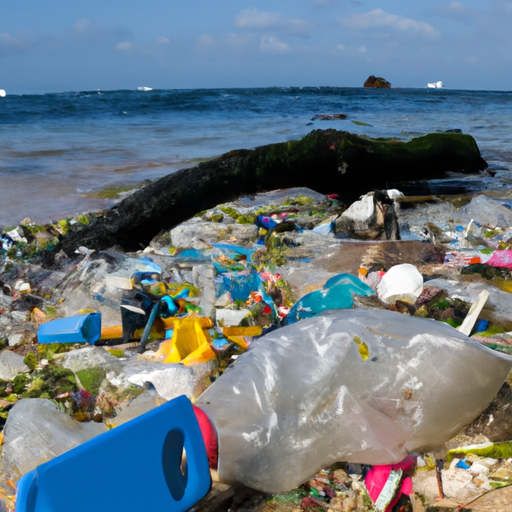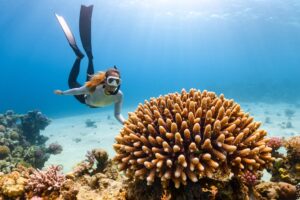Marine pollution is an escalating global concern that urgently requires attention, but how does marine pollution affect ocean life? For one thing, it places the intricate and fragile balance of oceanic ecosystems in jeopardy. With a range of pollutants that span from non-degradable plastic waste to harmful industrial chemicals and heavy metals, the scope of this issue is alarmingly extensive.
Understanding the far-reaching ramifications of these pollutants is vital not only for marine biology but also for the sustainability of life as we know it. Our oceans serve as more than just a habitat for a diverse set of marine species; they are also the lifeblood of the planet, regulating climate and serving as a primary source of food and livelihood for billions of people. So, exactly how does marine pollution affect ocean life? Read on!
The pollutants infiltrate various layers of marine ecosystems, causing devastation from the microscopic level of plankton communities all the way up to apex predators like sharks and whales. These pollutants don’t just endanger individual species; they also disrupt the natural processes that form the foundation of intricate food webs. For instance, plastic debris can physically harm marine life and release toxic substances, while chemicals like polychlorinated biphenyls (PCBs) and heavy metals can lead to disease and reproductive failure in several species.
In a world where everything is interconnected, the damaging ripple effects of marine pollution extend far beyond individual species or localized ecosystems. For example, these pollutants not only affect marine life but also threaten human health by entering the food chain and contaminating the seafood that ends up on our plates. Moreover, the destabilization of marine ecosystems exacerbates other existing environmental challenges, such as climate change and ocean acidification, creating a vicious cycle of degradation.
In this comprehensive article, we will delve into the question, “How does marine pollution affect ocean life?” By examining the complex dynamics at play, from the biological to the ecological, and from the immediate to the long-term consequences, we aim to shed critical light on the urgent necessity for effective remedial action. The objective is not merely to raise awareness but to spur global initiatives that can protect our oceans and the incredibly diverse forms of life that call them home.
Physical impact
Marine pollution can have severe physical impact on the ocean and its inhabitants. One of the most visible and immediate impacts is oil spills. These spills can happen due to accidents during transportation or extraction of oil, and they release large quantities of oil into the ocean. The oil forms a thick layer on the surface of the water, blocking sunlight from reaching the marine organisms below. This can lead to decreased photosynthesis and disrupt the entire marine ecosystem.
Another physical impact of marine pollution is the disruption of habitats. Human activities such as coastal development, dredging, and the dumping of waste materials can destroy or modify the natural habitats of marine organisms. Coral reefs, for example, are extremely sensitive to any change in their environment. When sedimentation or pollution occurs, it can cause the coral reefs to bleach or die, leading to the loss of biodiversity and the destruction of crucial habitats.
Entanglement in debris is yet another physical impact of marine pollution. As our oceans become increasingly polluted with plastic and other debris, marine organisms such as turtles, dolphins, and seals can become entangled in these items. This can result in injuries, suffocation, and even death. In addition, these entangled animals may have difficulty finding food or flee from predators, further endangering their survival.
Chemical impact
Marine pollution also has significant chemical impacts on the ocean and its organisms. One of the most concerning aspects is the introduction of toxic chemicals into the marine environment. Industrial waste, agricultural runoff, and sewage discharge can all introduce harmful chemicals into the water. These toxins can bioaccumulate in the tissues of marine organisms, leading to various health issues and impairments.
Heavy metals, such as mercury and lead, are of particular concern. These metals can enter the ocean through industrial processes and contaminate the water and the organisms living in it. Marine organisms that ingest these heavy metals can suffer from reproductive problems, neurological disorders, and impaired growth and development.
Bioaccumulation is another chemical impact of marine pollution. Bioaccumulation refers to the process where toxic substances accumulate in the tissues of organisms over time. As smaller organisms are consumed by larger ones, the toxins are transferred along the food chain, becoming more concentrated at higher trophic levels. This can have devastating effects on top predators, such as sharks and whales, as they accumulate high levels of toxins in their bodies, leading to a range of health issues and reduced reproductive success.
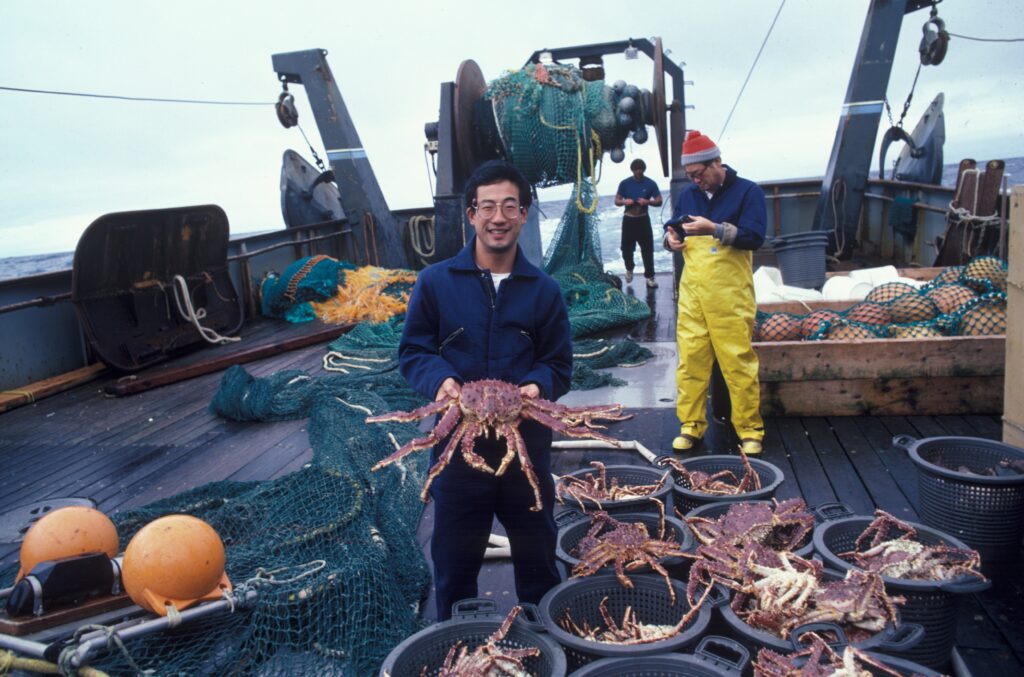
Check Out Our Top Eco Friendly Product Picks On Amazon Here
Biological impact
Marine pollution has a profound biological impact on the diverse organisms that call the ocean home. One of the most significant impacts is the harm caused to marine organisms themselves. Pollution, particularly from chemicals and plastic debris, can lead to the illness and death of many species. Fish, sea turtles, marine mammals, and birds are particularly vulnerable to these threats. The presence of harmful substances and debris in their environment compromises their overall health and can disrupt their normal life processes.
Loss of biodiversity is another major biological impact of marine pollution. Biodiversity refers to the variety of species and habitats found in a particular area. When pollution occurs, it can lead to the destruction or alteration of habitats, causing the decline or loss of certain species. This loss of biodiversity can have cascading effects on the entire ecosystem, disrupting important ecological processes and diminishing its resilience.
Coral reef destruction is another significant biological impact of marine pollution. Coral reefs are some of the most diverse and vibrant ecosystems on the planet, providing crucial habitats for numerous species. However, pollution, including increased water temperatures, sedimentation, and chemical contamination, can lead to coral bleaching and ultimately the death of corals. This not only affects the corals themselves but also the multitude of organisms that rely on coral reefs for food, shelter, and reproduction.
Effects on marine mammals
Marine mammals are particularly vulnerable to the effects of marine pollution. Intoxication and poisoning are common consequences of exposure to pollutants. Chemicals such as pesticides, heavy metals, and oil can accumulate in the bodies of marine mammals, leading to various health issues, including organ failure and even death. Additionally, contaminated prey can further exacerbate the intoxication and poisoning risks.
Another major impact on marine mammals is reduced reproductive success. Exposure to pollutants can impair the reproductive systems of these animals, leading to difficulties in conceiving or maintaining healthy pregnancies. This can result in reduced birth rates and potentially even the extinction of certain species over time.
Disruption of feeding patterns is yet another effect of marine pollution on marine mammals. Toxic substances can alter the behavior and physiology of marine mammals, affecting their ability to find and catch prey. This can lead to malnutrition, weakened individuals, and increased vulnerability to other threats, such as predation or disease.
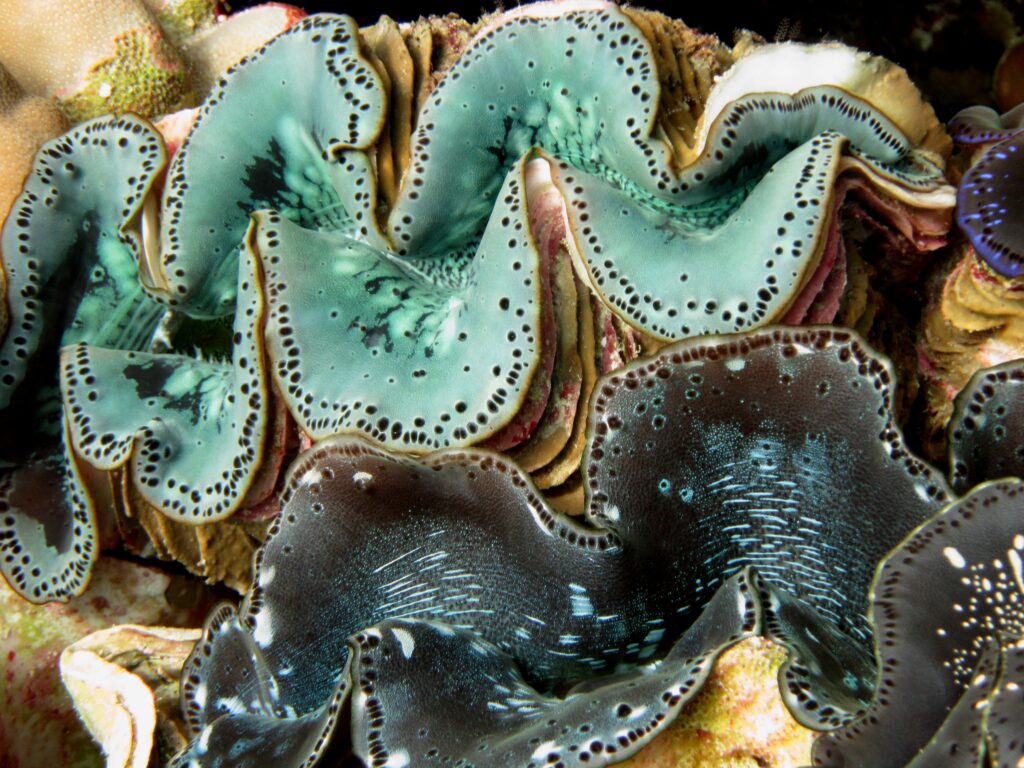
Effects on marine fish
Marine fish also face numerous challenges as a result of marine pollution. One of the most significant impacts is impaired growth and development. Exposure to pollutants such as heavy metals and chemicals can disrupt the normal growth processes of fish, leading to stunted growth, deformities, and reduced overall fitness. This can have long-term consequences for fish populations, affecting their ability to reproduce and maintain healthy numbers.
Altered behavior is another effect of marine pollution on fish. Chemical pollutants can affect the sensory systems of fish, impairing their ability to navigate, find food, and detect predators. This can lead to reduced foraging success, increased vulnerability to predation, and ultimately decreased survival rates.
Decreased population size is a concerning consequence of marine pollution on fish. With the combination of physical and chemical impacts, fish populations can experience declines in their numbers. Habitat destruction, pollution-induced diseases, and the altered dynamics of the food chain can all contribute to these declines. As fish populations decrease, it can have ripple effects throughout the entire marine ecosystem, affecting other species that rely on them for food or ecological interactions.
Impact on marine birds
Marine birds are also greatly affected by marine pollution. One of the most concerning issues is the ingestion of plastic. Many marine birds mistake floating plastic debris for food and consume it. The ingestion of plastic can cause blockages in their digestive systems, leading to malnutrition, starvation, and even death. This problem is particularly prevalent in areas with high plastic pollution, such as ocean gyres and coastlines.
Damage to feathers and wings is another impact of marine pollution on birds. Oil spills, for example, can coat the feathers of marine birds, reducing their ability to fly, stay buoyant in the water, or thermoregulate properly. When birds become oil-soaked, they may also ingest the toxic oil while preening, leading to additional health issues.
Interference with migration is another consequence of marine pollution on birds. Pollution, such as oil spills or habitat destruction, can disrupt the natural migration routes and stopover sites of many marine bird species. This can lead to lost breeding opportunities, reduced foraging areas, and increased energy expenditure during migration, ultimately impacting the survival and reproductive success of these birds.
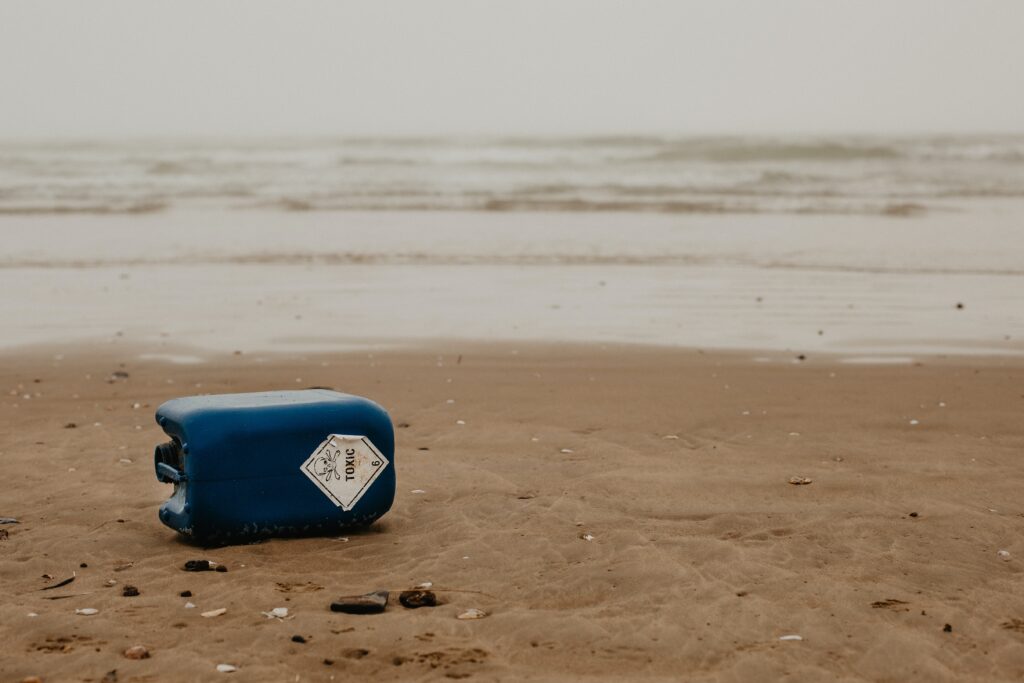
Ocean acidification
Ocean acidification is a growing concern related to marine pollution. Excess carbon dioxide in the atmosphere is absorbed into the ocean, leading to a decrease in pH levels. This decrease in pH, known as ocean acidification, has detrimental effects on shell-forming organisms such as corals, oysters, and various plankton species. The acidic conditions make it difficult for these organisms to build and maintain their protective shells or exoskeletons, ultimately impacting their survival and contributing to the loss of biodiversity.
The disruption of marine food webs is another consequence of ocean acidification. Many marine species rely on the abundance of plankton as a primary food source. However, the reduced survival and abundance of certain plankton species due to acidification can disrupt the entire food web, affecting the availability of prey for larger organisms, such as fish and marine mammals.
Habitat loss is yet another impact of ocean acidification. Certain habitats, such as coral reefs and kelp forests, are particularly vulnerable to the effects of ocean acidification. As these habitats decline, the organisms that rely on them for shelter, breeding grounds, or food sources may suffer from habitat loss, leading to further declines in their populations and a higher risk of extinction.
Eutrophication
Eutrophication is a form of marine pollution caused by an excess of nutrients, particularly nitrogen and phosphorus, entering the water. Excessive algal growth is a notable consequence of eutrophication. When excessive nutrients reach the ocean, they promote the growth of harmful algal blooms. These blooms can cover large areas of the ocean surface, blocking out sunlight and depleting oxygen levels in the water.
Depletion of oxygen is another effect of eutrophication. Harmful algal blooms consume a large amount of oxygen during their decomposition process. As a result, oxygen levels in the water can be drastically reduced, leading to what is known as “dead zones” where aquatic organisms struggle to survive.
Fish kills are a significant impact of eutrophication. When oxygen levels plummet due to the decomposition of harmful algal blooms or excessive organic matter, fish and other aquatic organisms suffocate and die. These fish kills can be devastating not only for the fish populations but also for the entire ecosystem that relies on them for various ecological functions.
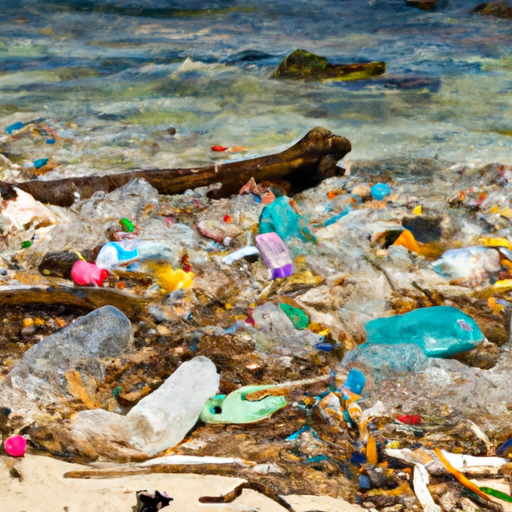
Microplastics
Microplastics are small plastic particles that measure less than five millimeters in size. These particles can have a significant impact on marine life. Ingestion by marine organisms is a major concern. From filter-feeding organisms to larger predators, many marine species mistake microplastics for food and consume them. The ingestion of these particles can lead to internal injuries, blockages of the digestive tract, and malnutrition.
Transfer through the food chain is another consequence of microplastics in the ocean. As smaller organisms that have ingested microplastics are consumed by larger ones, the particles can be transferred up the food chain. This means that even species that do not directly consume the microplastics in the water can still be exposed to them through their prey, leading to a wider range of impacts on marine life.
Toxicity to marine life is a significant concern when it comes to microplastics. These particles contain various additives, such as plasticizers and flame retardants, which can leach into the surrounding water and harm marine organisms. The ingestion of toxic microplastics can disrupt the normal physiological processes of these organisms, leading to developmental issues, reproductive problems, and compromised immune systems.
Global climate change
Global climate change, driven by human activities, has wide-ranging impacts on the ocean and its inhabitants. Rising sea temperatures are a significant consequence of climate change. As greenhouse gas emissions trap heat in the atmosphere, the ocean absorbs much of this excess heat. This leads to an increase in water temperatures, which can have a range of impacts on marine life, including changes in distribution patterns, altered migration routes, and increased susceptibility to diseases.
Ocean acidification, as mentioned earlier, is also intimately connected to global climate change. The excess carbon dioxide in the atmosphere not only leads to warmer temperatures but is also absorbed by the ocean, resulting in increased acidity. As discussed, this can have detrimental effects on shell-forming organisms and disrupt marine food webs, further exacerbating the already dire consequences of pollution on ocean life.
Sea level rise is another significant impact of global climate change. As the planet’s ice caps and glaciers melt, the resulting water flows into the ocean, causing sea levels to rise. This rise in sea levels can have profound consequences for coastal habitats, including erosion, flooding, and loss of critical habitats for many marine species. It also increases the vulnerability of coastal communities to extreme weather events and compromises the overall health and resilience of the ocean.
In a Nutshell
The devastating impact of marine pollution on ocean life is a multi-faceted issue that demands immediate and concerted action. The relentless discharge of plastics, heavy metals, and toxic chemicals into marine ecosystems not only compromises water quality but also poses an existential threat to a wide range of marine species.
From the microscopic plankton, which form the basis of the oceanic food web, to apex predators like sharks and whales, marine pollution disrupts natural processes and alters behavior, often with fatal consequences. The bioaccumulation of harmful substances in marine organisms further cascades through the food chain, imperiling not just individual species but the intricate balance of marine biodiversity.
Additionally, marine pollution exacerbates the challenges posed by climate change, ocean acidification, and overfishing, thereby accelerating the decline of ocean health at an alarming rate. While efforts to curb marine pollution have gained momentum through various international agreements and grassroots initiatives, much work remains to be done.
As guardians of the planet, we must recognize the interconnectedness of all life and act swiftly to mitigate this escalating crisis. The health of the ocean is not merely a reflection of its own state, but a mirror of human stewardship of the Earth, revealing a clear message: we must do better.

